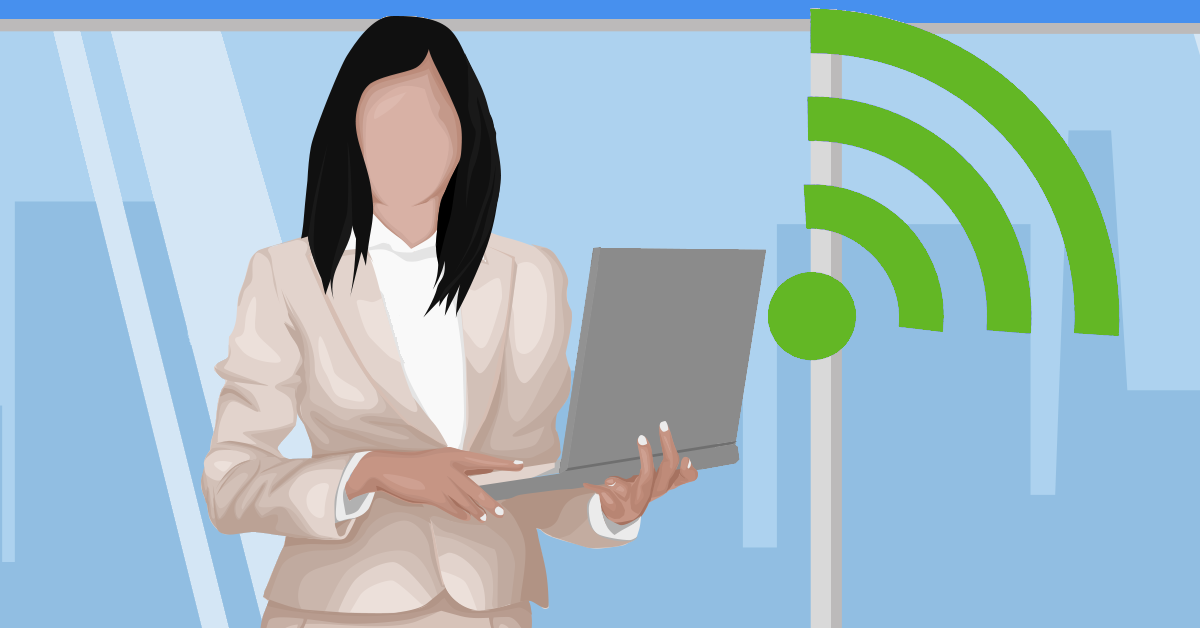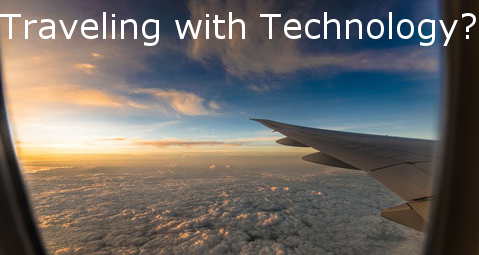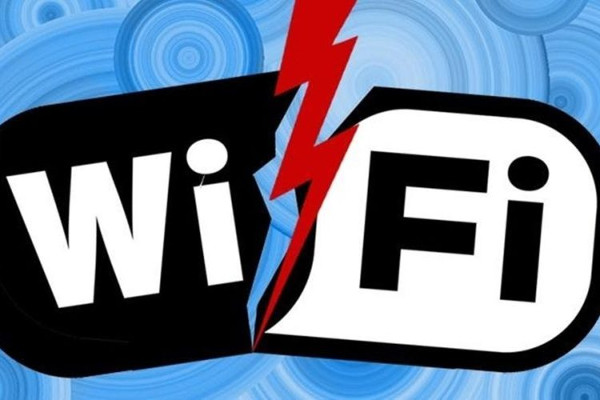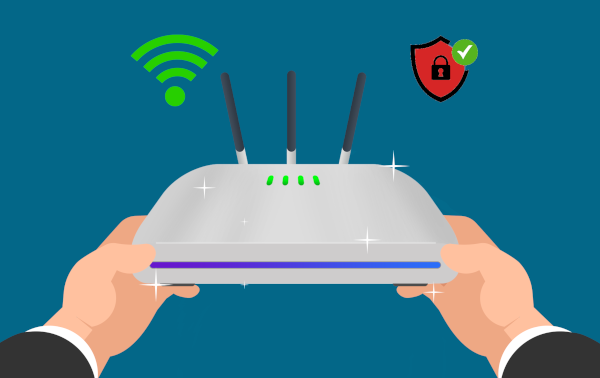Have you noticed your internet experience declining recently, do you have bad wireless coverage throughout your office or concerned about the security of your network? If so, it may be time for an upgrade. Continue reading
Tag Archives: wifi
What Cybersecurity Issues Are Hiding In Your Business?
We are tend to ignore or put off issues that we don’t know about, think are too hard to fix or believe it won’t happen to me. Here are some of the most common cybersecurity issues faced by SMBs that that could leave your business in danger if left unchecked. Continue reading
Why Are Printers Still Terrible?
With VR headset, we can swim with sharks, our phones can recognise our faces and digital watches can detect that we’ve been in an accident. With all this technological innovation, why are printers still so frustrating? This blog article aims to explain some of the reasons and how to make the most of the situation. Continue reading
Does Your Office Need Business-Grade WiFi?

In today’s business world, having great WiFi isn’t a luxury – it is a necessity. For some small businesses, consumer grade WiFi may be sufficient (especially if it is not widely used), but with the explosion is usage of mobile devices many find that business-grade WiFi is more appropriate. As companies grow, there becomes a tipping point where business-grade is necessary. So how do you know if your business is ready for business-grade WiFi? Ask yourself the following questions to find out.
How many devices use your Wireless Network?
It used to be that a few laptops connected to your WiFi network, but that is no longer the case. With the rise of portable devices such as smartphones, tablets and other devices each person may be connected to your wireless network from several devices. Consumer-grade hardware is designed for just a few people (ie the small amount that typically live in a single household) but can not manage larger amounts of users and all of their devices. This is especially true for sustained concurrent usage. Remember that your employees aren’t the only people who expect to be able to connect to your WiFi. One of the first things visitors and customers typically do is look for a WiFi network to connect their smartphones to.
What is the size and area of your workspace?
The number of access points you will need for your business is dependent on the amount of physical space that needs to be covered, the shape of the area, wall material and the number of users / devices. In smaller spaces, consumer-grade WiFi may be good enough. Larger, oddly shaped spaces benefit from business-grade. If your building’s walls are made of brick, cinder blocks, or cement, you likely need more access points than buildings made of other materials. Make sure you have a strong connection from all locations. It is annoying to only be connected to wireless in certain areas of a building and find yourself in a deadzone one step later.
Access points for business-grade WiFi tend to be more powerful and flexible. For example, some business WiFi systems can move Wi-Fi devices from a crowded access point to one that is less busy. By doing this, everyones access remains consistent. If you foresee your range needing to increase, such as renting out more space, it is much easier to add more access points to a business-grade network than consumer-grade one. Businesses that anticipate scaling up soon are better off with business-grade WiFi.
Do you want guests to have the same quality Wi-Fi as workers?
In households, where consumer-grade WiFi hardware is used, all users share the wireless network equally. In a home environment, if children are slowing down the internet with Netflix or video games, it is not a big problem. However, a choked business WiFi can cause a lot of problems. Business-grade WiFi allows you proper network management. You can assign a designated amount of bandwidth to different users so they are unable to clog the entire connection. You can also allow visitors internet access without giving them unlimited access to your local network.
How much does the internet affect your employees’ productivity?
For some companies, workers only use WiFi for a few quick tasks. With these types of businesses, if the internet is slow, it won’t have a big impact on how much work your employees get done and consumer-grade wireless might be a good choice. For other companies where there isn’t much people can do if the WiFi isn’t working well then a business grade connection is essential. WiFi troubles can also lead to frustrated and unhappy workers.
Strong WiFi is a necessity for all businesses. This is especially true for larger businesses that connect a lot of devices (from both an employees and visitors perspective) and have a large work area. Also for those where employee productivity depends on a strong connection. The goal is to keep your business-critical technology running smoothly. Consider carefully whether consumer-grade Wi-Fi or business-grade Wi-Fi is the best choice for your business. When you ask yourself the questions above, the answer should become clear.
If you are in Adelaide, South Australia and your business’s wireless network is struggling then give us a call on (08) 8326 4364 or via email at su*****@dp*********.au to discuss a solution.
Traveling With Technology?
 Business trips can be stressful at the best of times. Whether you’re off for an overnight visit to a client, a few days for a training session or a longer business conference there are certain things you need to keep in mind:
Business trips can be stressful at the best of times. Whether you’re off for an overnight visit to a client, a few days for a training session or a longer business conference there are certain things you need to keep in mind:
Be careful with free WiFi
Many hotels have free WiFi along with libraries, cafes, bookstores and other public areas. Unfortunately, that convenience can come at a huge cost. The wireless network you use to check your email while relaxing with a latte could be operated by someone up to no good or even have been taken over by a hacker.
Using a VPN can help as well as only using secure websites (make sure the sites you visit have the little HTTPS lock).
Connect via your cell phone
The wireless networks in hotels are notorious for being slow or insanely expensive. You may find that you can use your mobile as a wireless Internet connection. This means that you connect your laptop to your phone via WiFi or cable and piggy back on its mobile internet connection. Most carriers and phones allow this – but not all. Importantly, if you’re in another country it can also be worthwhile getting a local sim card for your phone rather than paying expensive roaming charges.
Don’t forget power adapters
You’ve seen it before…people asking to borrow your charger and huddling around in groups until their device has enough juice to get them through a few more hours. Remember it is only funny when it happens to other people so make sure that it doesn’t happen to you. Be sure to pack your correct power adapters and cables, along with any plug/voltage converters required to match where you are going. It is also worth carrying your USB charging cables on your person or carry on luggage, as many planes and airport shops now offer a place for you to plug in for a quick boost.
Have plans for being offline
Sometimes you simply can’t get online, which will do you no good when you’re checking into your hotel and all your booking details are tucked safely away in your email acount. You can print out essential travel and business details on paper, but if you have a lot or don’t want to carry them, you can also save them to a document on your phone or computer. Emails can be copied and pasted into a MS Word document, or you can print them to PDF by pressing Print > Save to PDF (or similar). Many apps also have an offline mode that allows you to store the information on your computer, including Evernote and Netflix.
Need a tech checkup before you go away? Call us today at 08 8326 4364 or via email at su*****@dp*********.au.
How The ‘KRACK’ Wi-Fi Security Issue Affects Us All
 The invention of Wi-Fi or wireless networking has been a dream come true. We can use our laptops and tablets anywhere in the office and our phones are using the main internet connection instead of sucking down data on the 3G / 4G network. It is essentially the backbone of the smart tech boom for home and business alike. Most Wi-Fi networks are password-protected with an encryption called “WPA2” and up until now this has been safe and secure.
The invention of Wi-Fi or wireless networking has been a dream come true. We can use our laptops and tablets anywhere in the office and our phones are using the main internet connection instead of sucking down data on the 3G / 4G network. It is essentially the backbone of the smart tech boom for home and business alike. Most Wi-Fi networks are password-protected with an encryption called “WPA2” and up until now this has been safe and secure.
Recently, a security flaw called KRACK (The Key Reinstallation AttaCK) was discovered. KRACK allows hackers to break into Wi-Fi networks – even the secured ones and your wireless networks are possibly vulnerable as a result.
How KRACK works?
KRACK doesn’t work via a problem with your device or how it was set up as it is an actual issue with the Wi-Fi technology itself. The attack gets between your device (eg computer, tablet or mobile phone) and the wireless access point (eg modem / router) to reset the encryption key so hackers can view all network traffic in plain text. Since just about everyone relies on Wi-Fi so much, this might mean hackers have a front row seat to your credit card numbers, passwords, confidential files, emails and more.
NOTE: The hacker needs to be in physical range of your Wi-Fi network to exploit this flaw and it doesn’t work remotely like other attacks we’ve seen recently. Given that most Wi-Fi networks extend well past your own home/business walls, this is small comfort, but important to know.
How to protect yourself
Run your updates: Software updates are being released which fix the flaw. Microsoft has already released them for Windows and Apple has one coming in a few weeks. So please take a few minutes to make sure you’re up to date with all your patches on any device that uses Wi-Fi (your smartphones, laptops, tablets, PCs, game consoles, etc). Unfortunately, some devices may be slow to get an update (eg Android phones), or if they’re older, may not get an update to fix the issue at all. If possible, consider using a cabled connection on those older devices or upgrade to one with support. With smart phones consider using data on the 3G / 4G network instead of Wi-Fi.
Be very careful with public Wi-Fi: While your local business center, library or school campus should have expert IT professionals keeping guard over security, it is a very different matter at your local coffee shop. It is unlikely small locations such as this will be on top of security patches. Remember, a hacker exploiting this flaw only needs to be in the same Wi-Fi area as you, so be careful you don’t give them an opportunity to grab your precious data.
Check your browser security: Before sending anything private over the internet, check that you are using a secure HTTPS site. You’ll know these by the little padlock you see next to the URL, and the address specifically begins with HTTPS. Major sites like Facebook, Gmail and financial institutions already use HTTPS.
If you need help updating your devices, or want us to check if you’re safe, give us a call on 08 8326 4364 or via email at su*****@dp*********.au.



